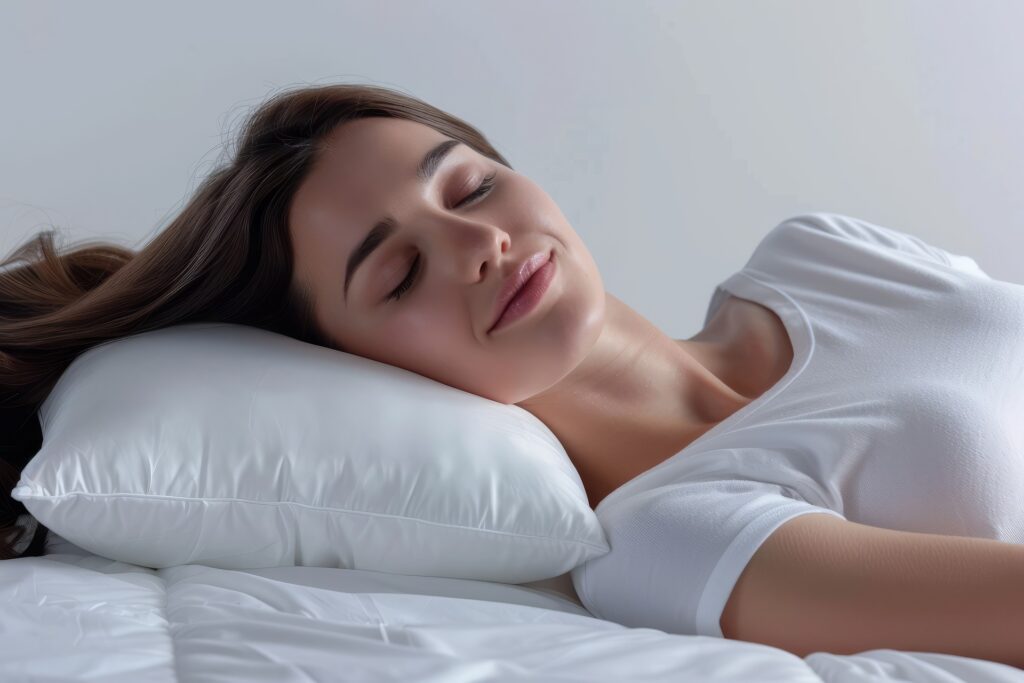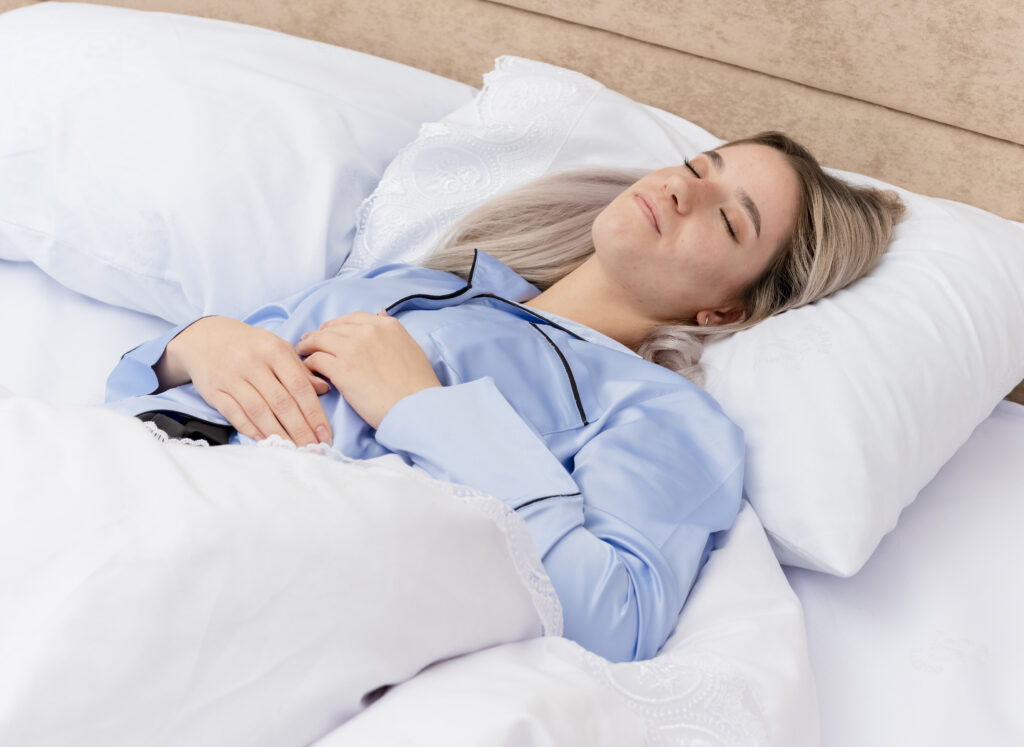Sleeping with your mouth open can cause various problems, such as dry mouth, bad breath, and even disrupted sleep. Below is a detailed understanding of why this happens and how to stop it Let’s discuss How To Stop Sleeping With Mouth Open.

01. Understanding Why You Sleep with Your Mouth Open
Sleeping with your mouth open is often due to one or more underlying causes:
- Nasal congestion: Blocked nasal passages from allergies, sinus infections, or colds force you to breathe through your mouth.
- Anatomical issues: Conditions like a deviated septum, enlarged tonsils, or small nasal passages can make nose-breathing difficult.
- Poor sleeping posture: Sleeping on your back can cause your tongue to fall back into your throat, blocking nasal airflow.
- Sleep disorders: Conditions like sleep apnea can cause you to breathe through your mouth at night due to difficulty maintaining airflow through the nose.

02. Improving Nasal Breathing
The first step to preventing mouth-breathing at night is to improve your nasal breathing. Here are some methods:
- Treat nasal congestion: Use saline nasal sprays or nasal strips to clear blockages in your nose. Decongestants or antihistamines can also help with allergies or sinus issues.
- Humidify your bedroom: Dry air can irritate your nasal passages, causing mouth-breathing. A humidifier can help keep the air moist.
- Use a neti pot: Rinsing your nasal passages with a saline solution using a neti pot helps reduce congestion.
- Allergy control: Make sure your sleeping environment is free from allergens like dust mites, pet dander, or mold.

03. Correcting Sleep Posture
Sleeping posture plays a significant role in whether you breathe through your mouth or nose:
- Sleep on your side: This reduces the likelihood of your tongue blocking your nasal airways. You can try placing a pillow behind your back to prevent rolling over during the night.
- Use an elevated pillow: Raising your head slightly with a wedge pillow can help keep your airways open, preventing mouth-breathing.
- Body alignment: Ensure your neck and spine are well-aligned when sleeping to promote better airflow through your nose.

04. Strengthening Your Nasal Breathing Muscles
Strengthening the muscles around your nose and mouth can improve your ability to breathe through your nose at night:
- Breathing exercises: Practices like Buteyko breathing or alternate nostril breathing (from yoga) help strengthen nasal breathing and reduce the tendency to breathe through your mouth.
- Orofacial exercises: These are specialized exercises targeting the mouth and facial muscles, which can help prevent mouth breathing by promoting nasal airflow.

05. Using Mouth Tape
Mouth taping is a method where you place a small piece of medical-grade tape over your lips to encourage nasal breathing:
- How it works: The tape discourages mouth breathing by gently keeping your lips closed while you sleep.
- Precaution: Always use medical tape designed for the skin and ensure you are not congested before taping your mouth. It is a technique best used under guidance if you are concerned about discomfort.

06. Addressing Sleep Disorders
If mouth-breathing is linked to a sleep disorder, it’s important to address the root cause:
- Sleep apnea: Consult a sleep specialist if you suspect sleep apnea. Treatments may include continuous positive airway pressure (CPAP) devices, which keep your airways open and encourage nasal breathing.
- Snoring: Mouth breathing often leads to snoring. Devices like anti-snoring mouthpieces or nasal dilators can help reduce snoring and encourage proper airflow.

07. Improving Oral Health
Since mouth breathing can cause dental and oral issues, it’s important to maintain oral hygiene:
- Stay hydrated: Drinking water before bed helps prevent dry mouth.
- Mouthwash or lozenges: These can keep your mouth moist overnight and help with any associated bad breath or dryness.
- Fluoride treatments: If dry mouth leads to tooth decay, ask your dentist about fluoride treatments to protect your teeth.

By addressing these areas, you can gradually reduce or eliminate mouth breathing while sleeping, improving your overall comfort and health.
When Can Babies Sleep With A Blanket In 2024

Do Dogs Sleep With Their Eyes Open 2024

How Many Hours Of Sleep Do Women Need in 2024



4 thoughts on “How To Stop Sleeping With Mouth Open”